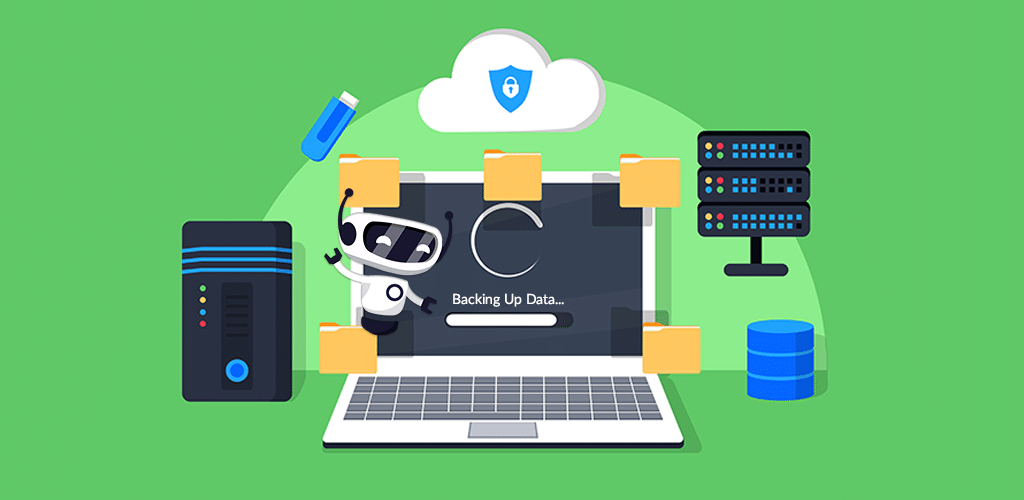March 4, 2020
Privacy Tip of the Week: Safely Back Up Your Data
Posted by Rhiannon

During our lives, we accumulate a lot of data. It includes documents, photos, emails, and more. The longer we lead a digital life, the more data we gather. However, despite the online clutter, few of us delete what we collect. Increasing storage capabilities and decreasing costs means we simply don’t have to. Unfortunately, never clearing our data means that it remains a privacy risk if stored poorly. Take a look at these tips to safely back up your data:
- Encrypt everything
- Use multiple storage methods
- Password protect it
- Maintain a schedule
Encrypt Everything
One of the best ways to keep our data safe is to encrypt it. Thankfully, most device operating systems do this by default. However, other storage methods may not. If you move files from your internal storage drive to external or cloud storage, take some extra steps to encrypt it. For example, both Windows’ BitLocker and Apple’s FileVault offer tools to encrypt external hard drives. As a result of safely backing up your data, you can keep your information safe from prying eyes.
Use Multiple Storage Methods
In addition to being valuable to hackers, your data is valuable to you. Because of this, losing it can be catastrophic. To avoid misfortune, when you back up your data, store it in multiple locations. Most users opt for a three-back up system. First, make sure there is a local file on your original device. Second, move a copy to an external storage device, like a USB or external hard drive, in case your original device malfunctions. Third, also upload a copy to a trustworthy cloud storage site. This allows you to access your files wherever you go, and protects them from local disasters like fires or floods that can destroy your device and external hard drive.
Password Protect It
Encrypting your data is a great way to protect it. However, encryption isn’t always enough. For example, if your laptop is stolen, the thief can use it to access your files. You can avoid this by password protecting your devices and accounts when you back up your data. Always choose a strong, lengthy password and store it in a password manager.
Maintain a Schedule
Finally, backing up your data is a great practice. It needs to be a regular one as well. Because of the nature of our online lives, we accumulate digital information very quickly. Neglecting to back it up frequently can result in masses of information being lost between back ups. By setting a regular back up schedule, you can easily minimize the damage of lost data. We recommend once a month or more.
Posted by Rhiannon
More Blog Posts
February 14, 2023
How the Investigatory Powers Act Impacts Citizen Privacy
In 2016, the United Kingdom passed the Investigatory Powers Act or IP Act, into law. This act empowered the government and related agencies to access and collect citizen data, without consent. Critics immediately slammed the new law. The media dubbed it the “Snoopers’ Charter.” Meanwhile, Edward Snowden described the act as “the most extreme surveillance […] Read moreFebruary 14, 2023
How to Easily Unblock Wikipedia with HotBot VPN
Wikipedia puts a wealth of information at your fingertips. Everything from the biography of Alexander Graham Bell to the basics of quantum computing can be instantly opened by curious browsers. But what happens when you can’t access that information? Whether a business network blocks it or a particular country censors it, don’t let that slow […] Read moreFebruary 14, 2023

